In September, Mohammed Mahmood, Nigeria’s minister of environment, said seven federal universities are running strictly on solar energy.
Speaking at the 2019 climate action summit in New York, US, the environment minister said 30 more federal universities are subscribing to the use of renewable energy.
“We are sourcing some money through climate financing. I am proud to say that Nigeria is the first country in Africa to issue sovereign green bond which we did in 2017. We were able to raise over N10 billion. Some of that money has gone into energy, some into the environment,” Mahmood said.
“For example, we have currently seven federal universities in Nigeria that are operating strictly on solar energy and we have another 30 universities that are coming on board, the same solar energy.
Advertisement
“The green bond was so successful that we have issued a second sovereign green bond, this time around over subscribed to the tune of 119 per cent.”
But how true are the minister’s claims?
With Nigeria’s endorsement of the Paris Agreement on climate change on September 21, 2016, the federal government, in December 2017, issued a N10.69 billion five-year sovereign green bond at a coupon rate of 13.48 percent.
Advertisement
In 2018, the Nigerian Stock Exchange (NSE) announced the listing of the bond on the bourse by the Debt Management Office (DMO).
UNDERSTANDING THE CLEAN ENERGY PROJECT
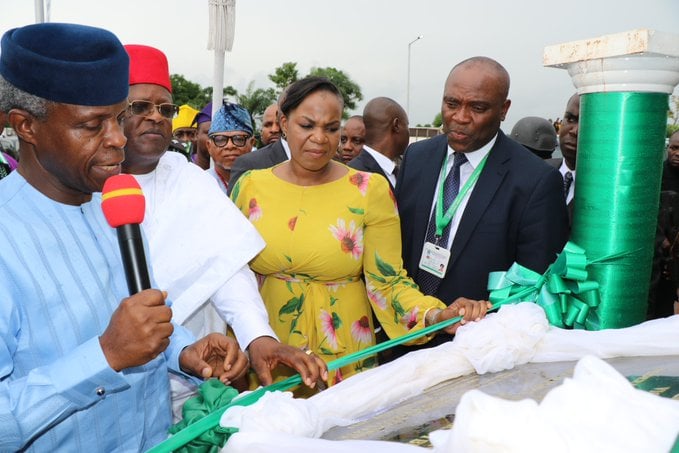
According to the National Universities Commission (NUC), Nigeria has 43 federal universities situated across the country. Though the minister did not mention the seven universities, findings showed that the renewable energy project was launched by the government in 2016 under the Rural Electrification Agency (REA).
The project tagged, energising education programme (EEP), was designed as a collaborative effort to get 37 federal universities off the national grid with the introduction of clean energy (solar power), aimed at providing reliable power supply. The objective was to ensure sustainable development, boost standard research and decommission hundreds of generators in the institutions.
Advertisement
Getting the universities off the national grid was considered a welcome development for a country of more than 200 million people with access to less than 5,000 megawatts of electricity. In a publication, the Association of Nigerian Electricity Distributors (ANED) said the national grid has had over 100 system collapses since the privatisation of the power sector in 2013, and five times in January 2019.
However, data obtained from the REA on the overall progress status of the EEP, which is in its first phase, indicates that nine universities and one teaching hospital are currently undergoing installation of solar hybrid and/or gas-fired captive power plants.
The agency listed the nine universities as Alex Ekwueme Federal University Ndufu-Alike Ikwo (AE-FUNAI), Ebonyi state; Bayero University, Kano state (BUK), Federal University of Petroleum Resources (FUPRE), Delta state; Obafemi Awolowo University (OAU) Ile-Ife and University of Lagos (UNILAG).
Others are Nnamdi Azikiwe University, Anambra state; Usmanu Danfodiyo University, Sokoto (UDUS); Federal University of Agriculture, Makurdi, Benue and Abubakar Tafawa Balewa University, Gubi Campus, Bauchi.
Advertisement
The agency said there are seven solar hybrid projects currently benefiting from the green bond, while the remaining two projects are the gas-fired plants.
On the current status of the project, the REA said all project sites have received complete ”mobilisation payment” and ”full second payment” from the sovereign green bond fund and the federal government.
Advertisement
But the question begging for answer is if seven universities under this project are STRICTLY powered by renewable energy as the minister of environment claimed in his address at the UN forum.
To find answer to this question, TheCable visited the nine universities to fact-check Mahmood’s claim and to track the status of the projects.
Advertisement
AT AE-FUNAI, ELECTRICITY SUPPLY IS CONSTANT
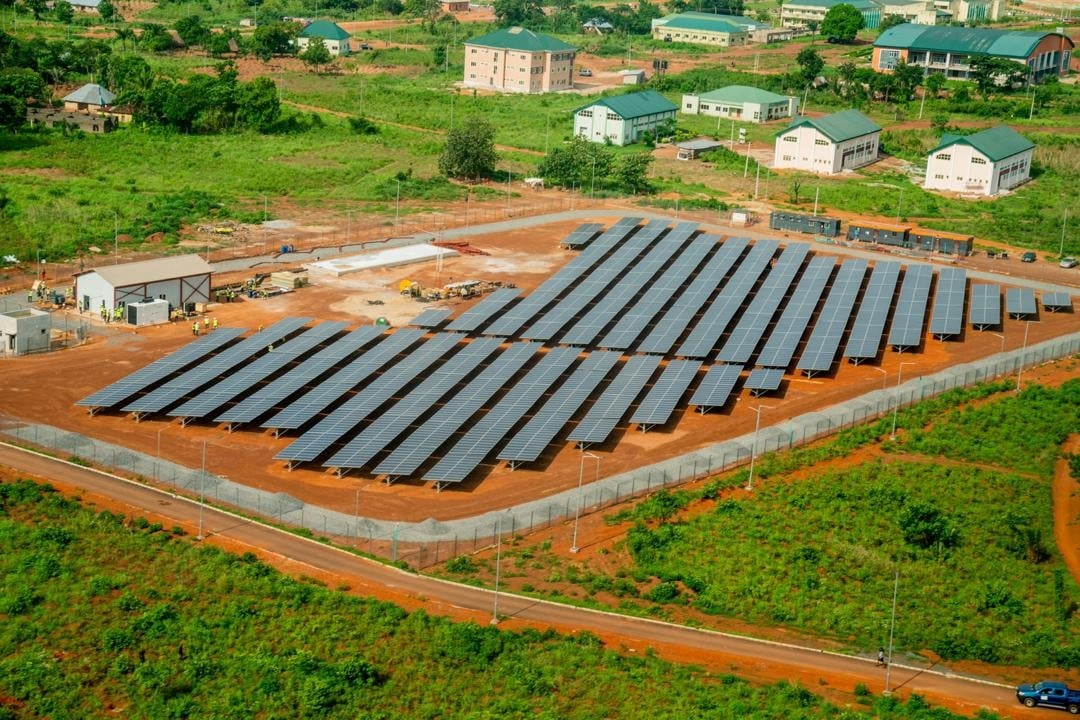
Established in 2011, Alex Ekwueme Federal University, Ndufu-Alike Ikwo (AE-FUNAI) is about 30 minutes drive from Abakaliki, the Ebonyi state capital. On August 2, Vice-President Yemi Osinbajo inaugurated a one megawatt solar hybrid power plant at the school, making it the first power plant to be launched under the EEP.
Advertisement
For the six hours TheCable spent at the permanent site of the university, the buildings on campus were lit – from the new auditorium to the café. Interestingly, there was no sound of any generator humming. Streetlights adorned with the banner of the REA crisscrossed the length of the institution. At the location of the power plant was an array of solar panels gazing at the bright sun.
It took time to convince the institution’s electrical engineer to talk about the project as he insisted he was not authorised to speak to the press.
He said the project was designed to provide 24-hour power supply. He said the university has three sources of power: a diesel generator, which serves as a backup during an emergency; the solar panels with 3,500 modules and batteries.
“We serve the whole university community for 24 hours with the solar power. If we have a long overcast, we will quickly switch back to the diesel generator. We have only had glitches twice since commissioning, which didn’t last for more than an hour. So, the generators are redundant,” he said.
“We also have a battery bank room. Actually, the university’s demand is less than one megawatts. They are just taking about 30 to 40 per cent of the capacity.”
Timothy Obinna, a graduating student of biochemistry, said the university had relied only on a central generator, since conventional electricity supply was not available, before the plants were installed.
“While the generator worked throughout the day, it would go off around 9pm. So, it has been erratic,” he said.
“Now with the solar power, we enjoy light for 24 hours. It has been a good experience. From 7pm, the solar street light will illuminate everywhere. Doing my project work was quite easy since we have enough light to work with.”
Verdict: The university runs only on renewable energy.
AT BUK, PROJECT INAUGURATED BUT NOT IN OPERATION
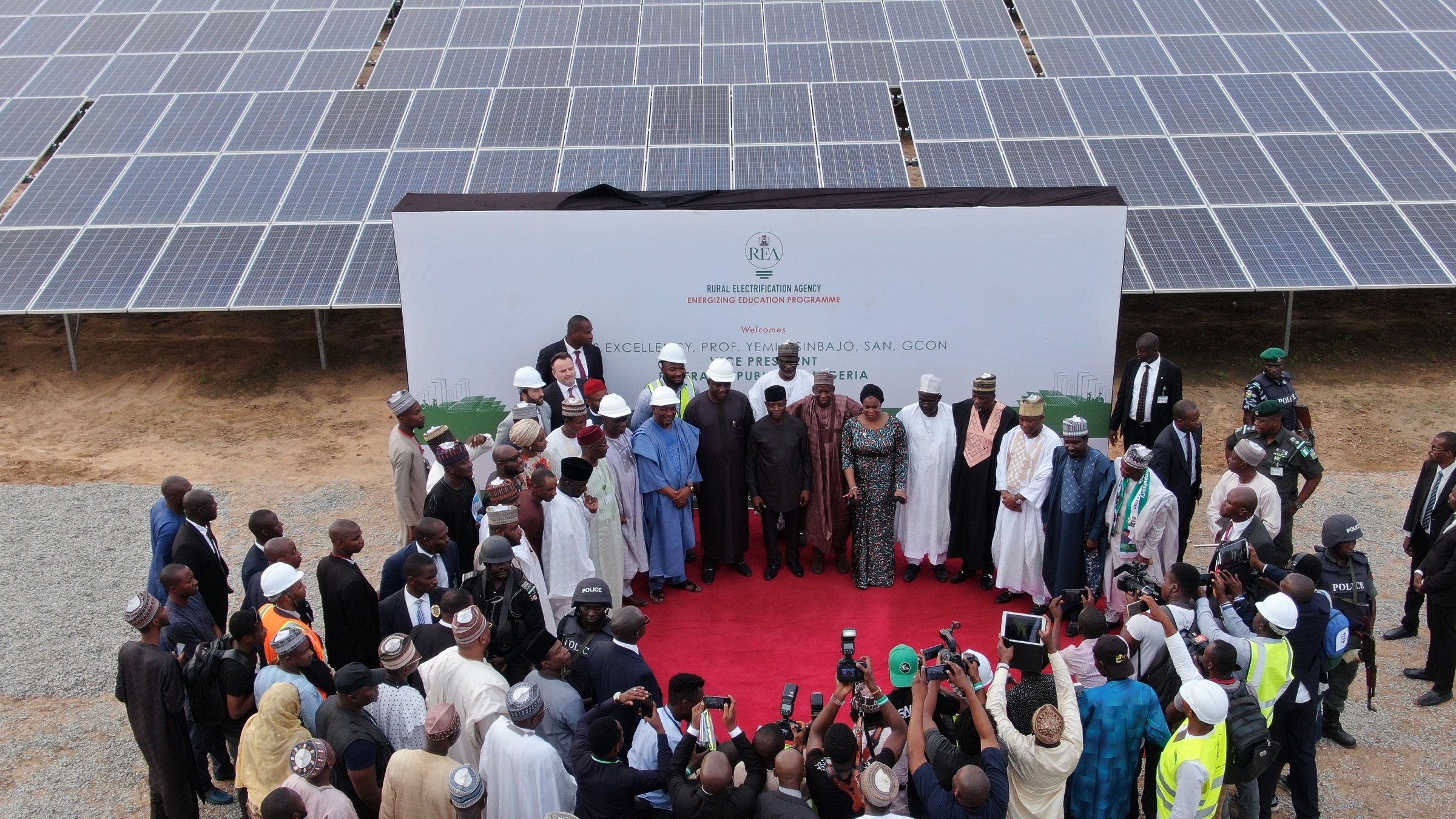
On September 3, the vice-president inaugurated the solar-hybrid power plant at Bayero University, Kano – the second project to be launched under the EEP. The 7.1 megawatt plant is touted to be the largest off-grid solar-hybrid power plant in Africa. However, the university still depends on the national grid and generators for power supply as the project is not in full operation.
From the gate of the new campus to the road leading to the project site, the university’s solar streetlights are adorned with REA banners.
On a visit to the site, Dauda Mudashiru, the resident engineer, told TheCable that the agency has successfully carried out a test-run of the plant but it has not started operations. “The plant will begin full operations in a few weeks when we have the go-ahead,” he said.
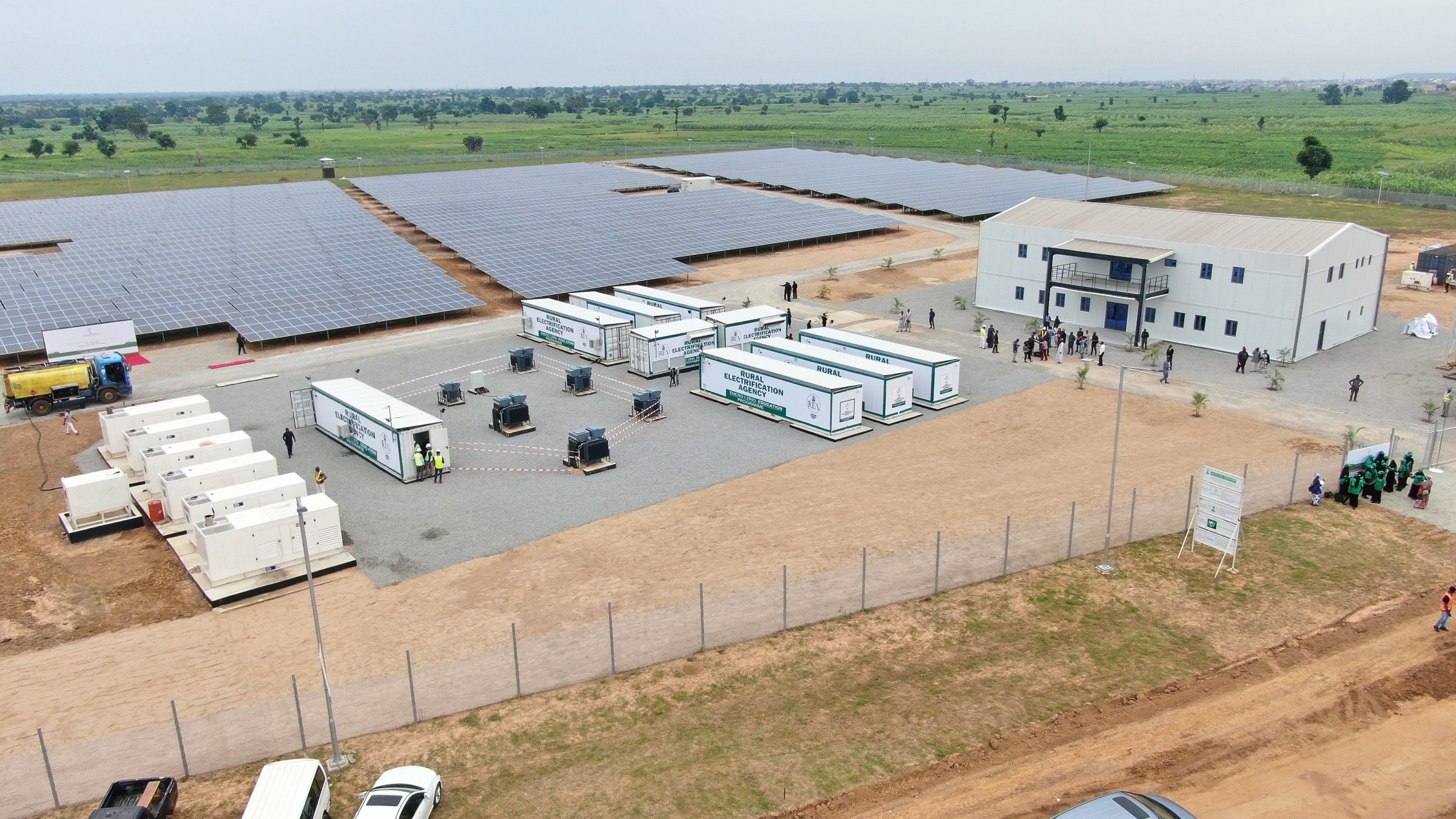
Muhammadu Buhari, a lecturer in the university and the project manager, said the solar plant is not ready for use.
“The plant is still not ready. It might be ready in the next one month, but I’m not sure. We are waiting for REA to give us their next line of action,” Buhari said.
Ibrahim Shawai, head of corporate communications, Kano Electricity Distribution Company (KEDCO), told TheCable the power firm is still the major electricity supplier to the university.
“For now, we are the major distributors here in Kano, Katsina and Jigawa states and we are also supplying electricity to Bayero University two campuses, the old and new site,” Shawai told TheCable.
Verdict: Project inaugurated but not in operation.
INSTALLATIONS IN PROGRESS AT UNIZIK
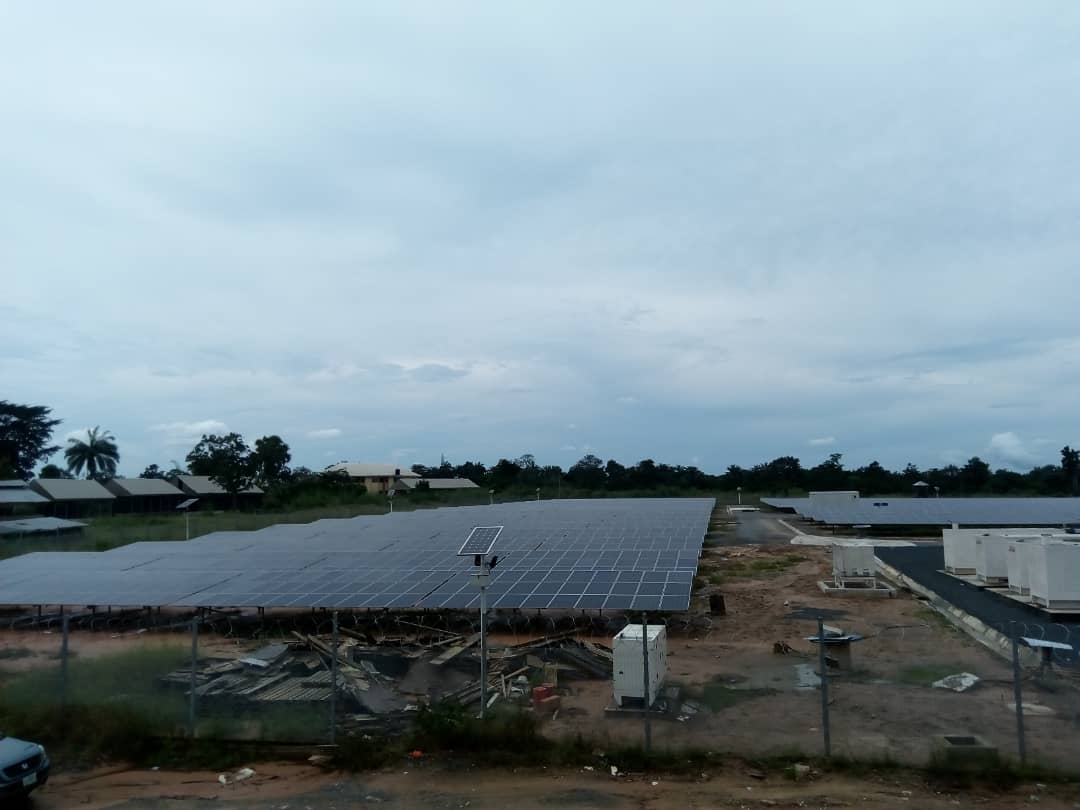
At the Awka campus of the university, there were workers at the project site of the 2 megawatt solar-hybrid power plant. The solar panels have been installed, and the battery rooms are visible from the outside.
However, the security guard at the site refused to grant TheCable access to the facility, saying visitors can only enter when the project is completed. When asked when it will be completed, he said he cannot tell as some installations are still in progress.
According to The Sun, the presidential audit committee which visited the location in March expressed dissatisfaction “over the slow pace of work at the N3.5 billion” project which had a nine-month completion deadline.
Idache Anthony, secretary of the presidential monitoring team, was quoted to have said the level of implementation was not impressive since it was awarded in 2017.
Verdict: Project not yet completed.
UNDER CONSTRUCTION AT FUA, MAKURDI
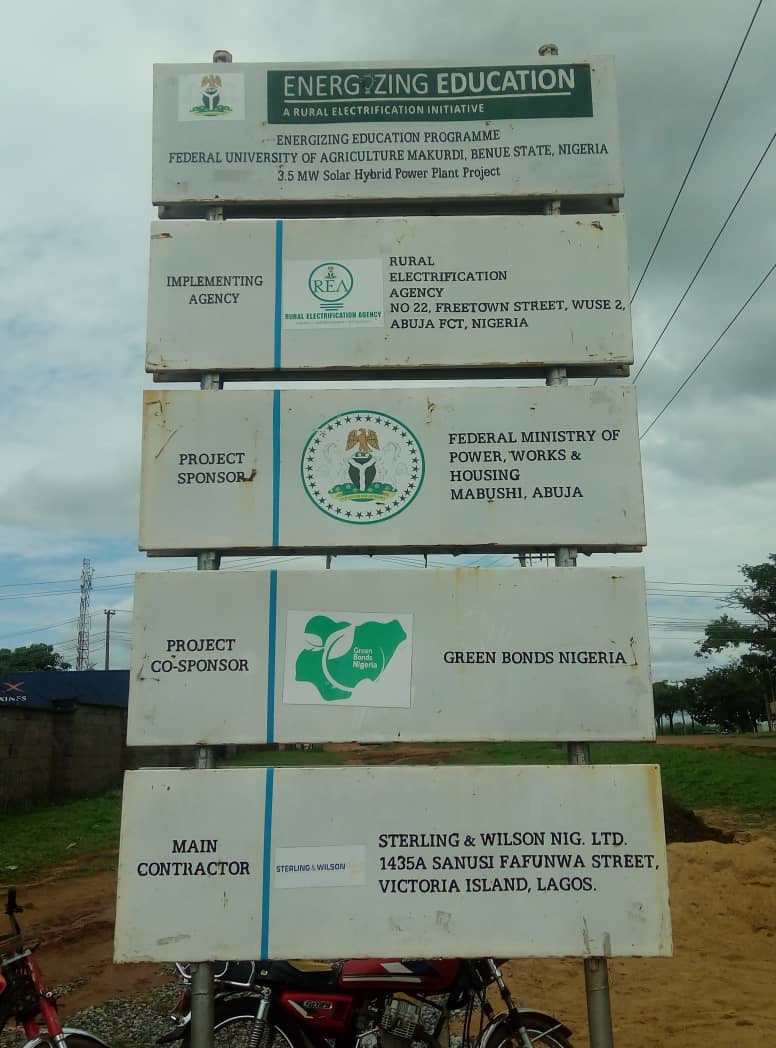
The project site of the 3.5 megawatt solar-hybrid power plant was under construction when it was visited.
The university relies on the national grid and generators for power supply.
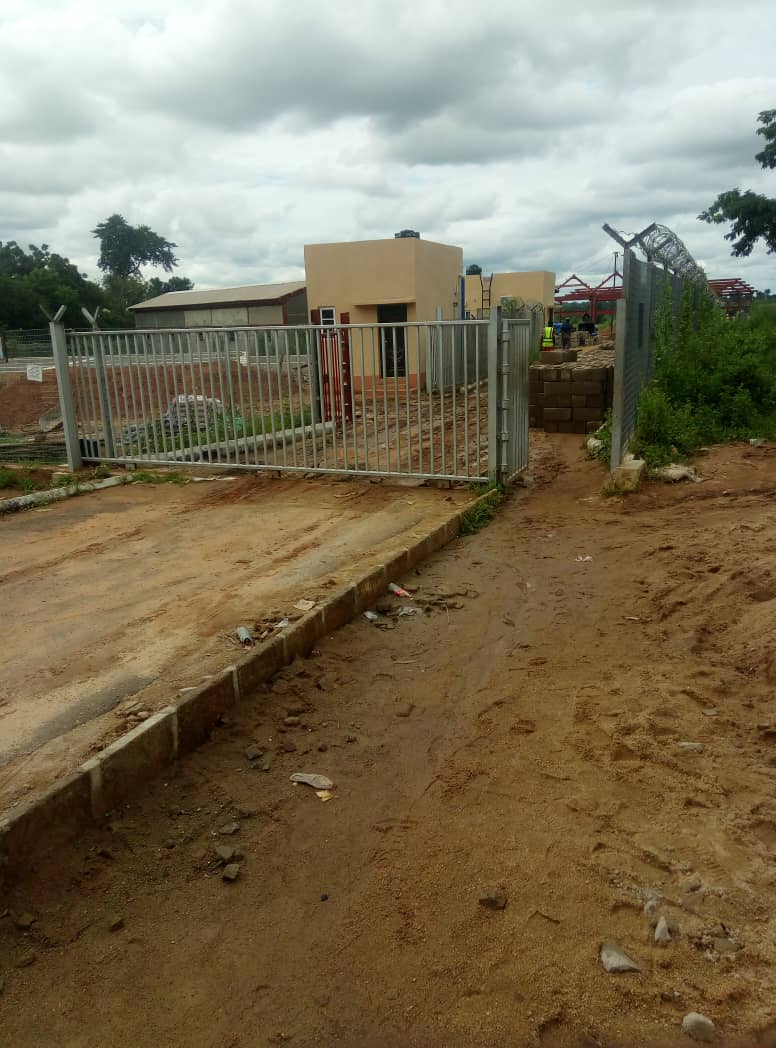
Verdict: Project still under construction.
PANELS INSTALLED AT ATB UNIVERSITY, BUT NO POWER YET
The 0.50 megawatts solar-hybrid project at the Gubi campus of the university already has the solar panels installed, but it has not been inaugurated for use. Hence, the university is not benefitting from the project yet.
There were construction workers on the project site when it was visited.
Verdict: Solar panels installed, but no deployed for use on campus
PROJECT AT FOUNDATION LEVEL AT UNILAG
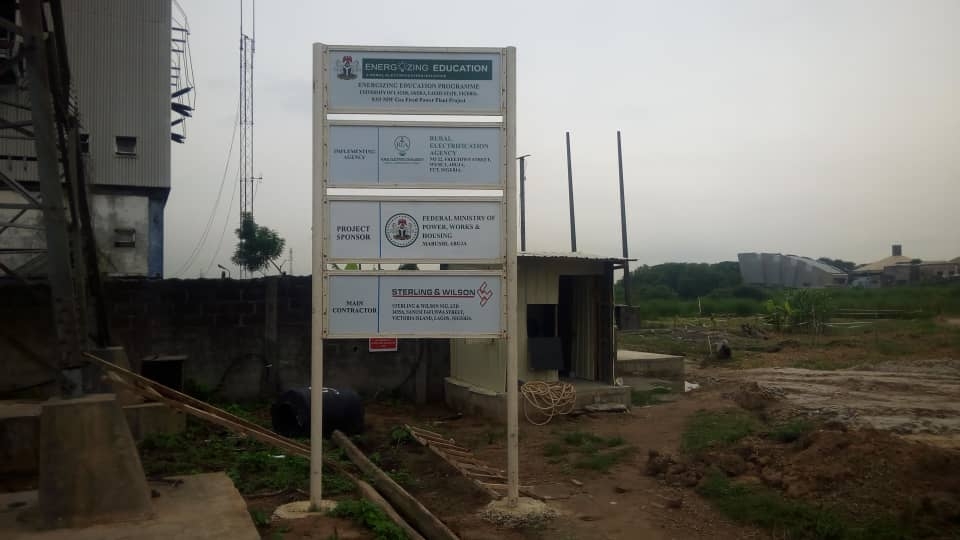
On October 11 when TheCable visited the site of the EEP project in front of the electricity transmission tower at the National Electric Power Authority (NEPA) complex at UNILAG, there was no power plant, but only a signpost to show the project site.
The contract for the project is reported to have been awarded in December 2017.
According to The Nation, when a team from the office of the secretary to the government of the federation (SGF) inspected the site on March 25 to know the level of implementation, the contractor, Sterling & Wilson Nigeria Limited, snubbed the delegation.
Verdict: The project is stalled; the university depends on the national grid and generators.
PROJECT YET TO BE INAUGURATED AT FUPRE
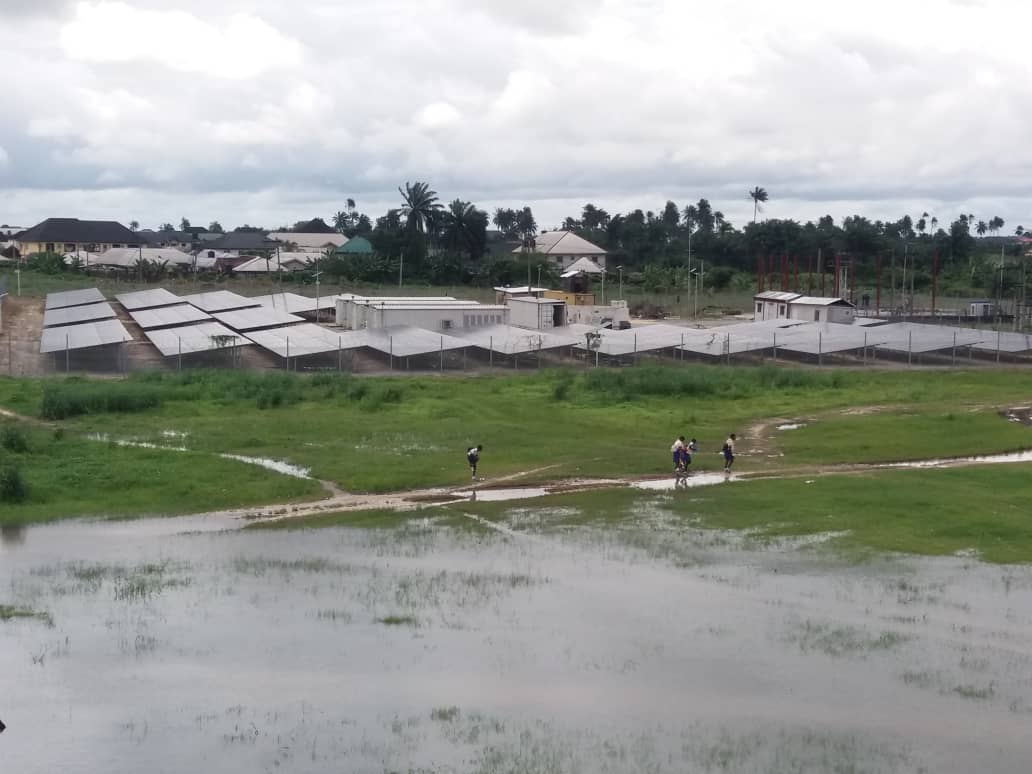
At the Federal University of Petroleum Resources (FUPRE), the 8.5 megawatt solar-hybrid power plant situated close to a swamp has not been inaugurated, but some installations have been done.
An official of the institution told TheCable that the project is awaiting inauguration, and that facility is ready for use by the university.
The university uses diesel-powered Mikano generators to meet its electricity needs. The institution, which was founded in 2007, has not been connected to public electricity for about a year.
Verdict: The project completed, but not in use.
PROJECT READY AT UDUS, BUT NOT INAUGURATED YET
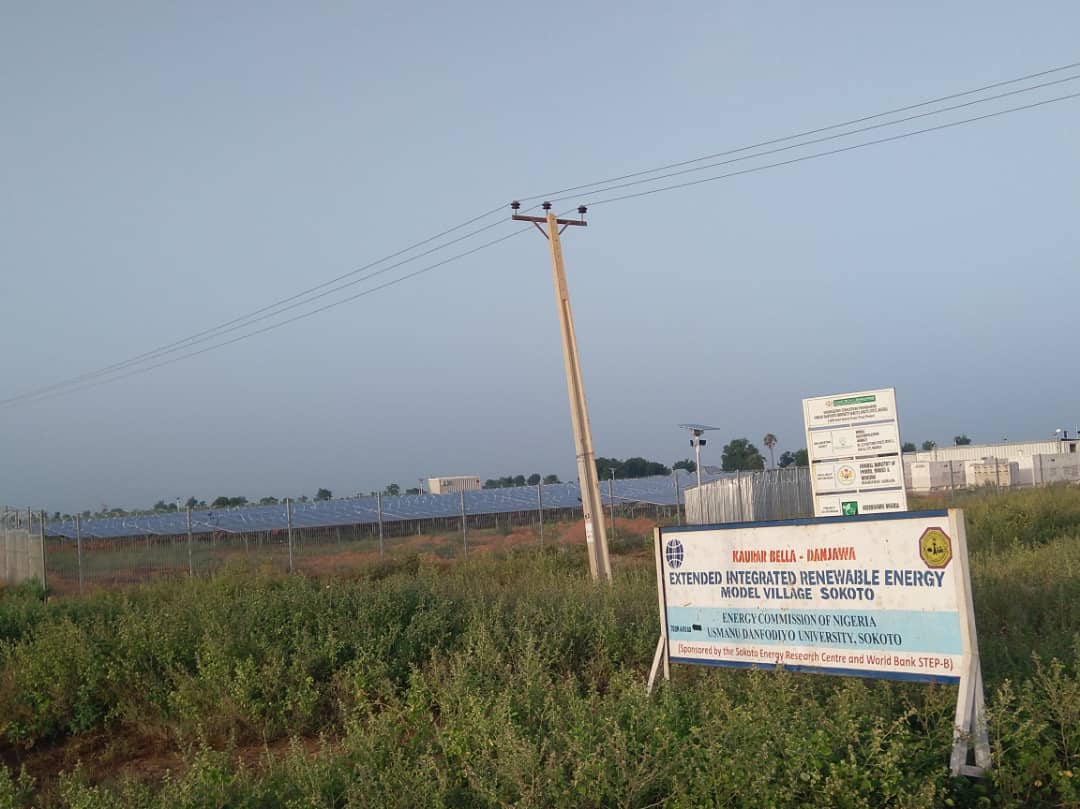
At the site of the EEP 2 megawatt solar-hybrid power plant along Bakasi road at Usmanu Danfodio University, Sokoto, an array of solar panels beam at the invading sun. However, the plant has not started serving the university community which still depends on the national grid and generators.
Verdict: Project not yet inaugurated for use.
PROJECT UNDER CONSTRUCTION AT OAU
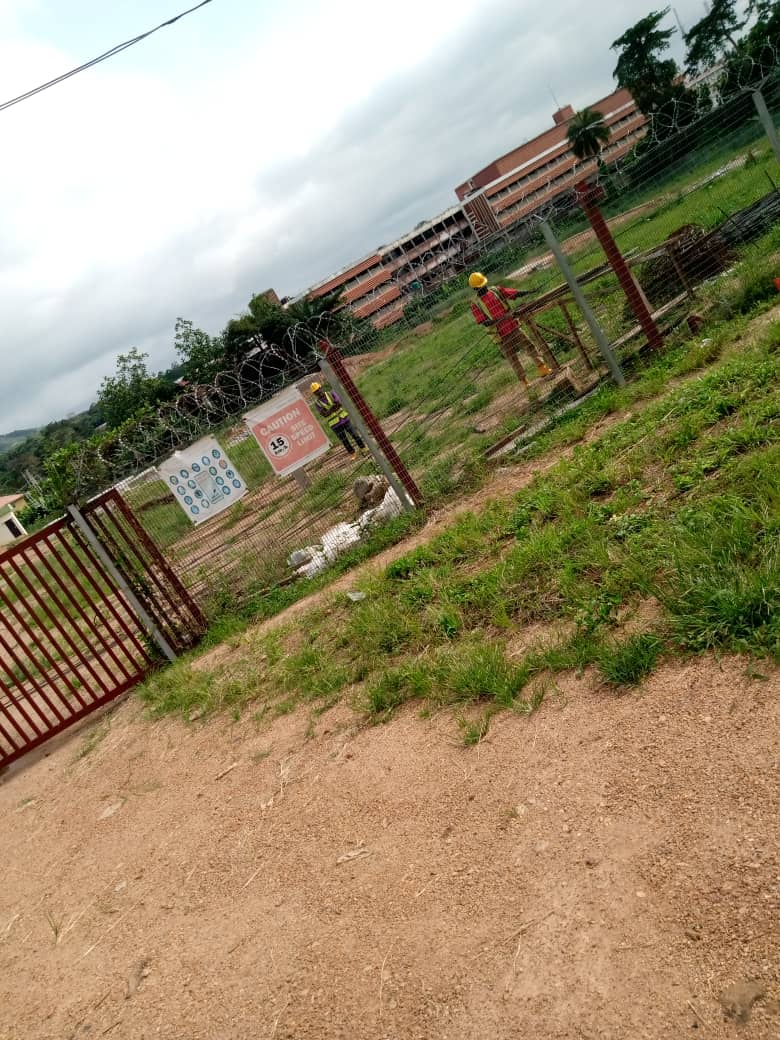
In July, Eyitope Ogunbodede, vice-chancellor of Obafemi Awolowo University (OAU), Ile-Ife, Osun state, said the institution will exit the national grid by October to generate its own electricity with the EEP power plant which started in 2017.
Speaking at a biennial conference of the African Institute for Science Policy and Innovation (AISPI), Ogunbodede said the university will be able to save about N65 million that it currently spends as electricity bill monthly.
At the power house behind the banking area of the campus where the 8.03 megawatt gas-fired power plant is to be sited, labourers were seen working on the project.
Verdict: Project under construction.
REA REACTS
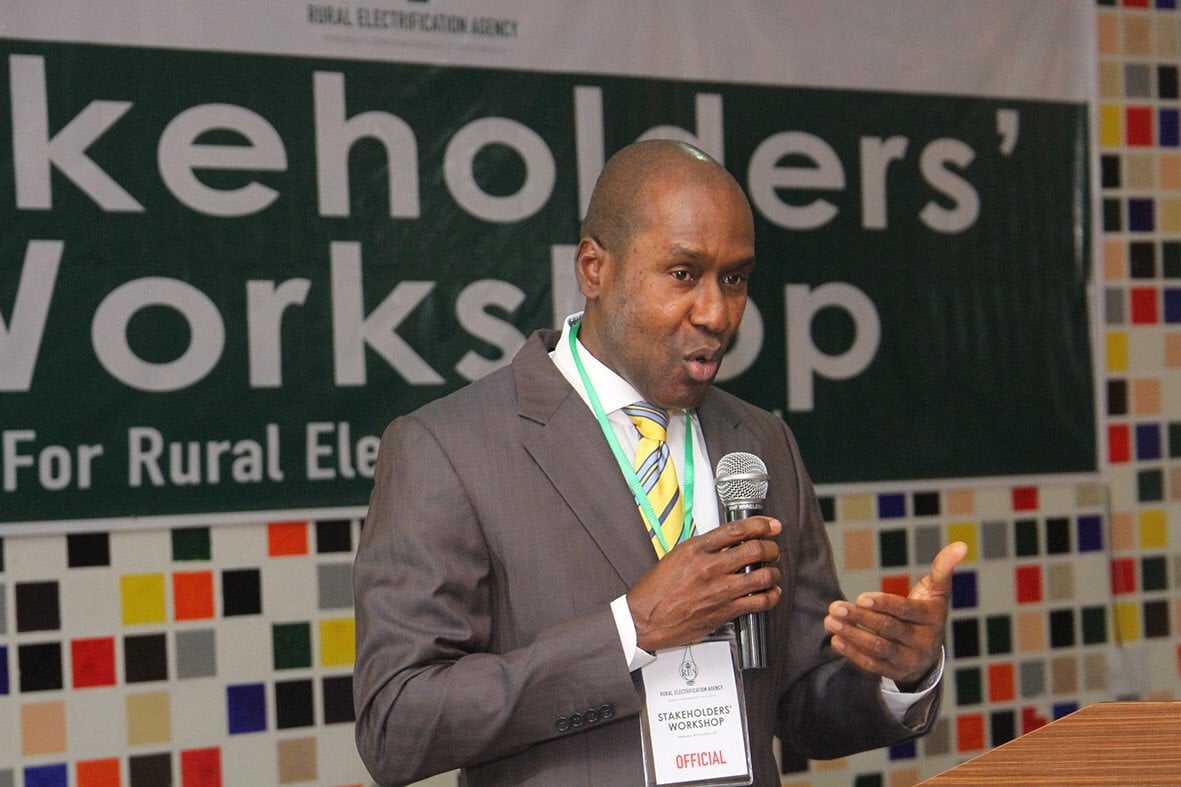
When TheCable contacted Ayang Ogbe, REA director of promotions, he confirmed that only the power plants at AE-FUNAI and BUK have been inaugurated.
“Official commissioning has taken place in both universities,” he said.
He said the project at UNILAG is stalled because the site is swampy.
“The project site was swampy. Site reclamation for purpose of reclaiming the swampy site is ongoing at the moment. Construction activities are happening on all the sites and commissioning of the remaining will commence this year,” Ogbe said.
HOW FG MULTI-BILLION NAIRA PILOT SOLAR PROJECT FAILED AT UI, ABU
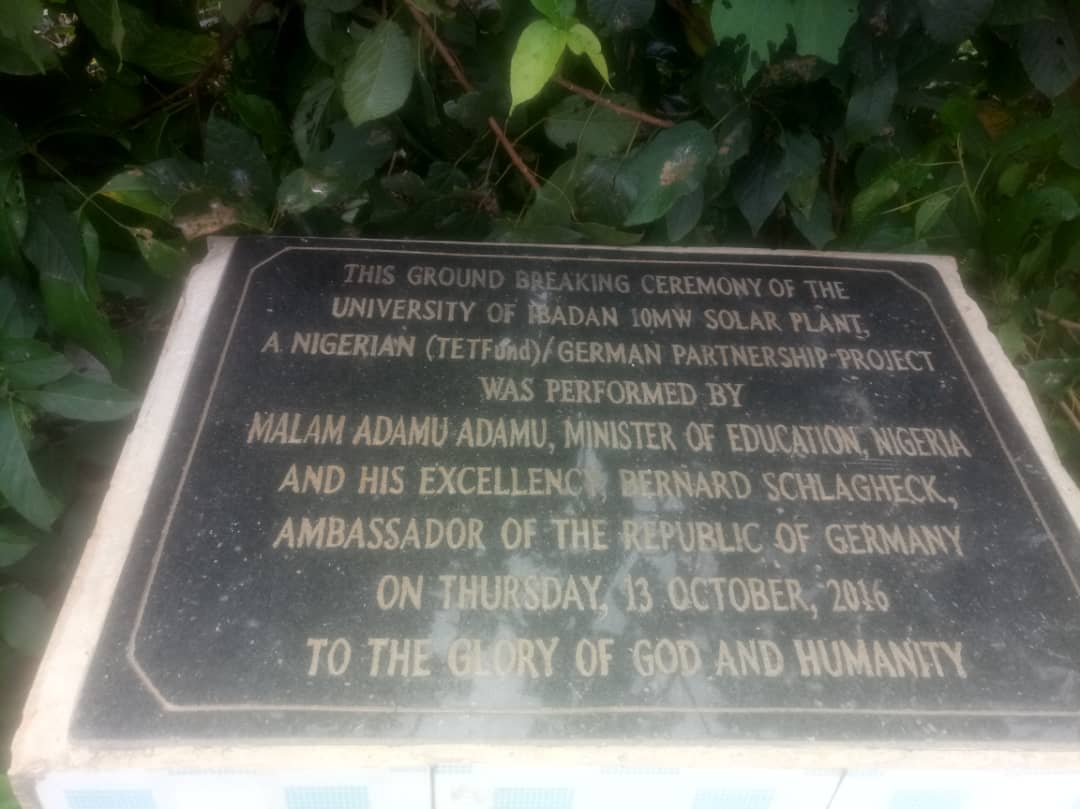
The federal government had proposed to begin the pilot phase of its solar project at the University of Ibadan (UI) and Ahmadu Bello University (ABU), Zaria, Kaduna state.
On October 13, 2016, Adamu Adamu, minister of education, inaugurated a 10-megawatt solar plant at UI under the Nigerian-German Energy Partnership Project (NGEP), with the assistance of the Tertiary Education Trust Fund (TETFund), after a two-year ground work.
Estimated to cost $15 million (N5.4bn), the project was slated to be delivered in six months. According to Isaac Adewole, former vice-chancellor of the university, the university consumed diesel worth N400 million annually.
At the event, Jeremey Gaines, coordinator of the NGEP, was quoted to have said the German government provided all of the research and personnel for the project without any charges.
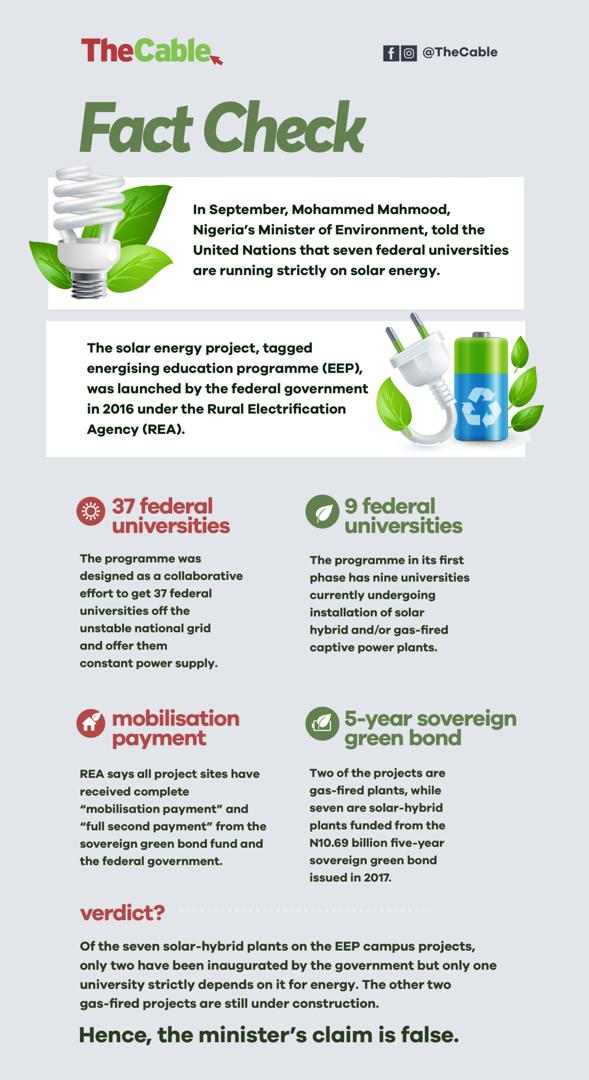
“The cost of the project, the time it takes for the project to start, and the time it takes for the project to be completed, may still go down, but that is the figure we are looking at,” Gaines was quoted to have said.
“If you take the cost of a plant like this, the cost unlike the cost of buying a thermal power station, or diesel generator, the diesel generator cost less money to buy but the Diesel generator dies after 5 years, then you have to have your back-up generator, and this will pay for itself after 5 years, taking lot of the money from the diesel.
“On a contrary, the upfront cost for both is not much different, it just that the solar panel gives you a maximum free operation for 25 years, and it will be advantageous for the university.”
When TheCable visited the Ajibode site of the power plant, the solar panels displayed during the launch were no longer there. The site has become a football field and a dump site. The only indication that an elaborate ceremony was held there was the brick foundation.
A month after the event at UI, the minister of education performed the “ground-breaking ceremony” of another 10 megawatt solar power plant at ABU.
The project estimated to cost N4 billion was meant to be sited at Biye village, Sabongari local government area of Kaduna and was also expected to be completed in six months to address the energy needs of the university and its environs.
Ibrahim Garba, the vice-chancellor, said the university spent about N85 million monthly on electricity. “That’s why we need our own power source to use and probably sell out to consumers out there,” he said.
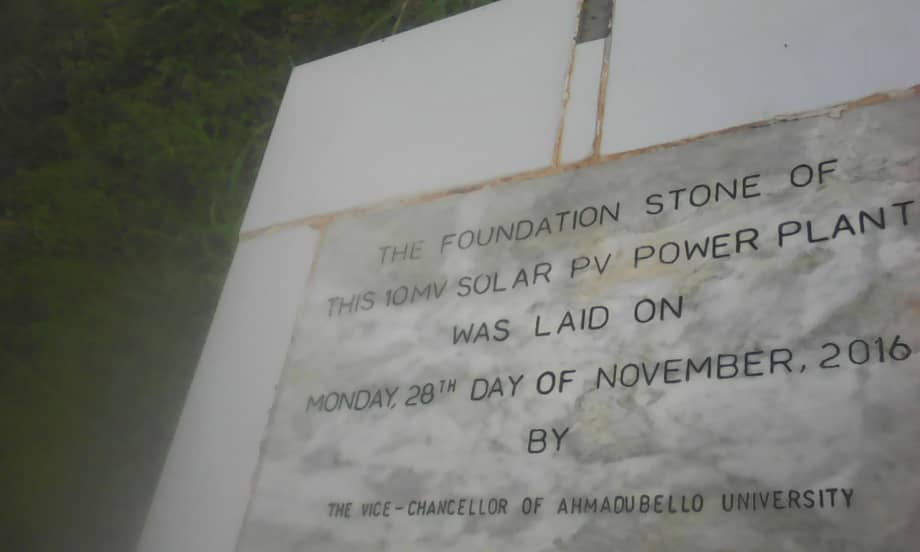
In a special bulletin issued by the university management on March 6, members of the institution were informed that energy efficiency within the campus is a priority, considering the huge amount of money spent on electricity.
On a visit to the location on October 8, the proposed site of the solar project was overgrown by weed, and there were no solar panels. The place is now a farm settlement.
FINAL VERDICT: Two solar power plants have been inaugurated at two institutions out of the nine universities under the EEP phase one project, but only one — at AE-FUNAI — is functioning, and the university is solely dependent on renewable energy.
4 comments

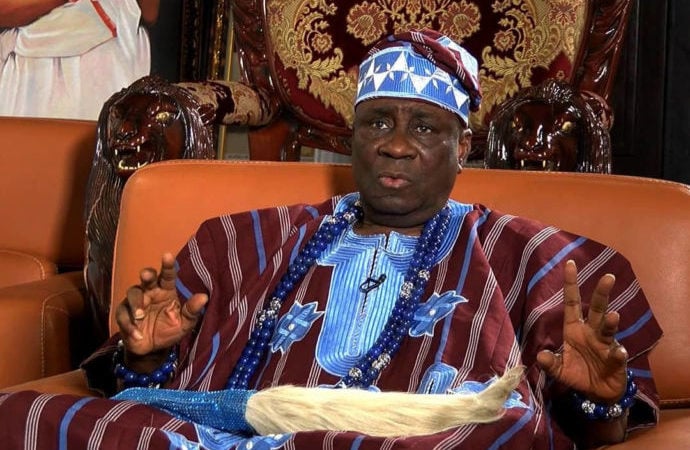
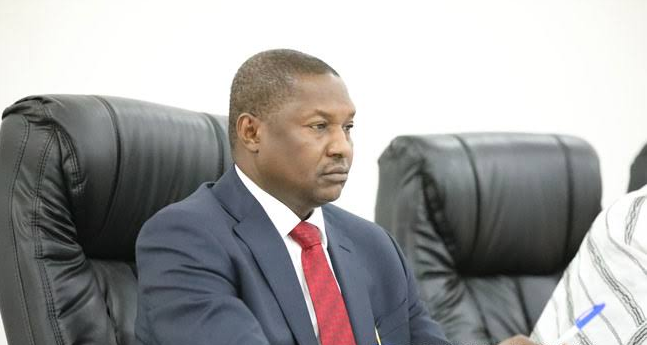




I really like this section of your paper. Please keep this up.
Green Energy is the future. The earlier we begin to start thinking and plan ahead of time, the better. I think it’s high time the government invest in Solar powered plants, instead of being overly dependent on hydro.
Nigeria needs to emulate other countries in terms of development. Nigeria is ranked the largest economy in Africa as of this year (2020). But it beat my imagination why we often take the backseat when it comes to development. Green Energy is the future. Some countries are planning to implement a 100% Green Energy usage by 2030. We need to diversify our power generation and not depending on Hydro.
Nigeria as a country isn’t ripe enough to migrate completely to Solar energy generation. Although Western countries are fast tracking the process of 100% reliability in Renewable in a couple of years from now. There’s a city in the United States (US) that is powered solely by solar energy. If we can emulate the Westerners, then Nigeria will be great in no distance time.